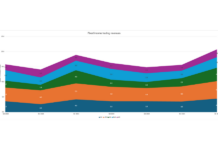Capital markets communication network, Symphony has been fined by the US derivatives regulator, the Commodity Futures Trading Commission (CFTC), after it found the firm’s execution tool, Symphony SPARC, was effectively a trading venue. SPARC was launched in late 2019, and was still seen as a key part of the firm’s strategy last year, when CEO Brad Levy was keen to emphasise Symphony’s role in supporting, but not providing, trade execution.
Symphony Communication Services had not registered as a swap execution facility (SEF). The order requires Symphony to pay a $100,000 civil monetary penalty and to cease and desist from any further violations of the Commodity Exchange Act (CEA) and CFTC regulations, as charged.
The order finds that from about July 2019 to March 2021, Symphony violated the SEF registration requirement by operating SPARC on its communication platform. Symphony designed the web-based SPARC Tool to provide a technological tool for automated request for quote (RFQ) workflow for interest rate and cross currency swaps. SPARC Tool enabled multiple swap market participants to select swap product parameters, such as swap type, clearing preference, tenor, and notional size to populate RFQs. Those RFQs could be sent to multiple swap market participants. SPARC Tool then permitted swap market participants that received the RFQs to negotiate prices that could be acknowledged or confirmed using the command “done.”
After the Division of Enforcement began an inquiry into Symphony’s unregistered activity, Symphony proactively identified and provided relevant information and thereafter took immediate steps to cease operation of its SPARC functionality. Accordingly, the civil monetary penalty is reduced to reflect Symphony’s substantial cooperation and remediation.
The discussion around where a trading system on the desk becomes a trading venue is crucial in the fixed income markets. As trading is largely negotiated bilaterally – even where trading electronically – and firm prices are often not disclosed prior to a request, the facilitation of trading is very different to the use of a central limit order book (CLOB) model that is common in equities trading.
In an advisory note issued alongside the judgement, the CFTC’s Division of Market Oversight (DMO) stated that an entity may need to register as a SEF when: (1) facilitating trading or execution of swaps through one-to-many or bilateral communications; (2) facilitating trading or execution of swaps not subject to the trade execution requirement in CEA section 2(h)(8); (3) providing non-electronic means for the execution of swaps; or (4) currently registered with the CFTC in some other capacity, such as a commodity trading advisor or an introducing broker, if its facility falls within the SEF definition.
A determination whether a particular facility is required to register depends on all of the relevant facts and circumstances of the facility’s operations, it noted, and said that DMO staff encourage entities falling within the categories above to review their activities and assess whether they meet the SEF definition, thereby requiring SEF registration.
©Markets Media Europe 2025


























